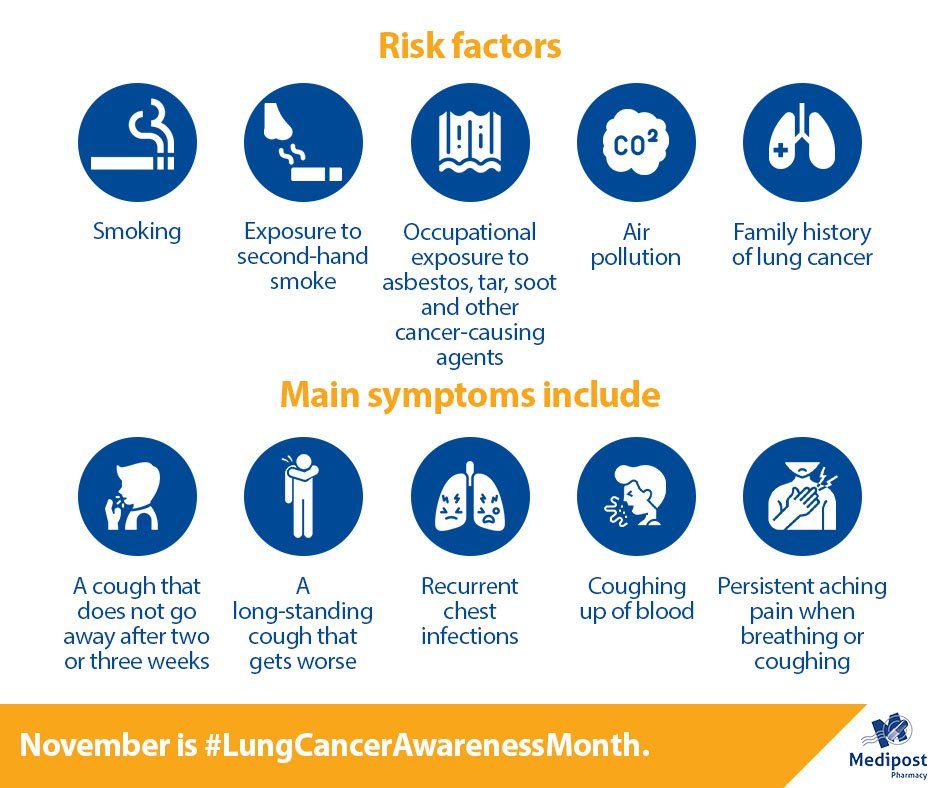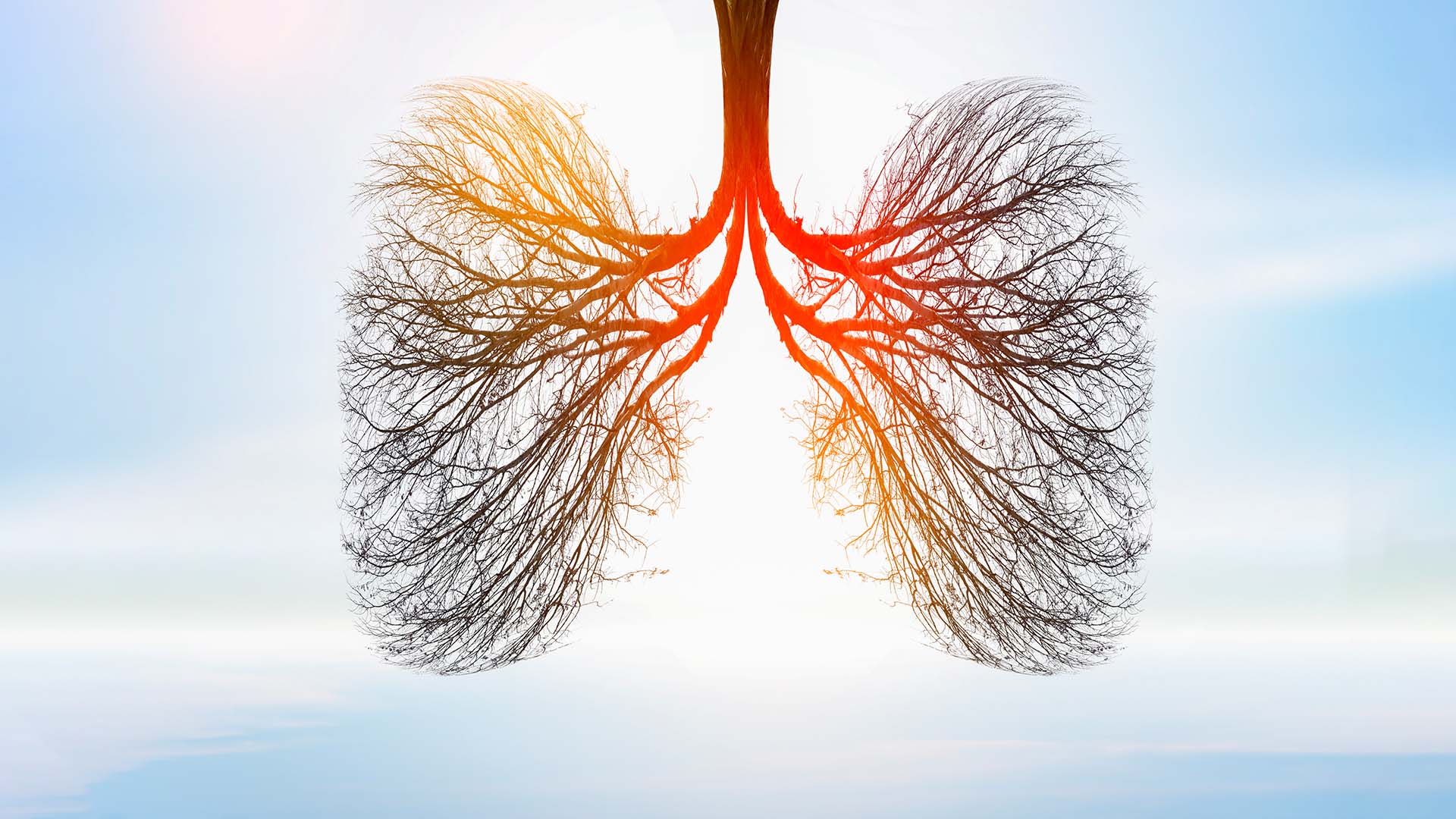Awareness saves lives: Lung cancer can be treated
More options and support for patients
Anyone can get lung cancer, yet few people are aware that testing and treatment are available for this condition, which is one of the most common cancers in South Africa. November is Lung Cancer Awareness Month, and medical progress in personalised cancer care today offers more hope than ever before.
“Although our patients across the country are affected by a broad spectrum of cancers and cancer-related illnesses, in keeping with worldwide data, the largest proportion are affected by lung cancer,” says Amanda Busch, oncology manager at South Africa’s largest national courier pharmacy, Medipost Pharmacy.
“Lung cancer may not always be easy to detect and its symptoms may sometimes be mistaken for other conditions. If you have any concerns, consult with a healthcare professional as soon as possible for early diagnosis and treatment.
“There are two main types of lung cancer, small cell lung cancer and the more common non-small cell lung cancer, which affects nine out of 10 people with lung cancer. Treatments have come a long way in the past decade with many more personalised options available to them. Other than surgery, oncologists may recommend chemotherapy, radiation or more recently immunotherapy or targeted therapy.”
The chemotherapy drugs, medicines and consumables required by oncology practices and their patients are dispensed and delivered by the national courier pharmacy under safe specified conditions.
Many options and informed, personal decisions
Sr Tienie Ackermann, a specialised oncology nurse at radiotherapy and clinical oncology practice Dr DN Chetty Incorporated at Netcare Unitas Hospital, says that the person is counselled and provided with the information they need to make decisions before embarking on any cancer therapy.
“Before I worked in oncology, I did not realise there are so many different types of cancer, with various treatments and options. Cancer can be beaten, but it is a life-threatening disease requiring strong and sometimes highly complex treatments. These decisions are therefore deeply personal for patients, and we provide individual care to support them in their choices throughout,” Sr Ackermann explains.
“A personalised treatment plan is provided for each individual, and we provide all the information they will need before starting treatment. To complement the specific oncology treatment the patient receives in the hospital, they are also provided with a treatment basket containing, for instance, pre-chemotherapy drugs, medicines to stimulate white blood cell development, as well as medications to help relieve side-effects such as nausea.”
Powerful treatments require specialised safe handling
Blood tests are done prior to each round of treatment, and the medicines and dosages may be adjusted accordingly. Medicines, including chemotherapy, are safely transported to the oncology practice, while supporting medication may be delivered directly to the patient for home use.
“Special care is needed when transporting certain cancer treatments, as some are cytotoxic. This means they can be harmful for healthy cells as well as the cancer cells they are intended to target, and additional precautions are needed for handling and transporting these substances, while other items supplied in oncology medicine have cold chain requirements,” Busch says.
Medipost Pharmacy has expert teams well trained in correctly and safely packaging oncology items stationed in Pretoria and Cape Town to effectively assist patients in ensuring treatments reach their destinations within the required specifications to arrive intact and optimally effective.
Side-effects and personal pharmacy advice
“As is well known, cancer treatment unfortunately generally is associated with some common and expected side-effects. Side-effects of chemotherapy for lung cancer may include shortness of breath, fatigue, skin reactions, and gastrointestinal issues,” Busch adds.
“The oncologist often prescribes or recommends supporting medication as part of the treatment plan. It is extremely important that the patient discusses all side-effects they experience with their treating practice to identify any symptoms that do not belong in the expected side-effect profile, as this may point to something else affecting their health that needs to be investigated.”
“There are ups and downs in cancer treatment, and this is why information and counselling are so important before treatment starts. Different types of anti-nausea medicine are prescribed according to the individual and their treatment plan, and it is often recommended that patients take a dose of anti-nausea medicine before coming in for treatment, as it is easier to prevent nausea than treat it once it has set in,” adds Sr Ackermann.
Busch advises that breathing and relaxation techniques may also be helpful. “Peppermint or ginger tea and high-fibre foods will help with the gastrointestinal side-effects of treatment. It is also best to avoid extreme sun exposure, and use gentle and mild skin products to help minimise skin irritation. Ensure good nutrition and get plenty of rest,” she says.
The dedicated oncology pharmacy teams provide personal assistance and advice to registered patients on the medicines dispensed by Medipost Pharmacy. As part of its personalised practical support to patients, Medipost Pharmacy assists with processing medical aid claims and facilitating authorisation where required on behalf of patients, ensuring the treatments are funded from the correct benefits.
“Lung cancer can be treated very successfully, but the importance of early diagnosis cannot be emphasised enough. Genetics, age, environmental influences and smoking are significant risk factors, but anyone can be affected by lung cancer. Screening and awareness can save lives, and help change the lung cancer picture for all,” Busch concludes.
For more information visit
https://medipost.co.za/oncology-service-provider/














